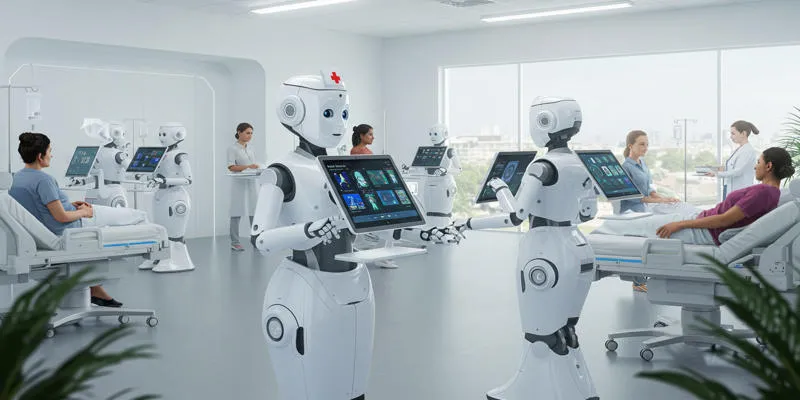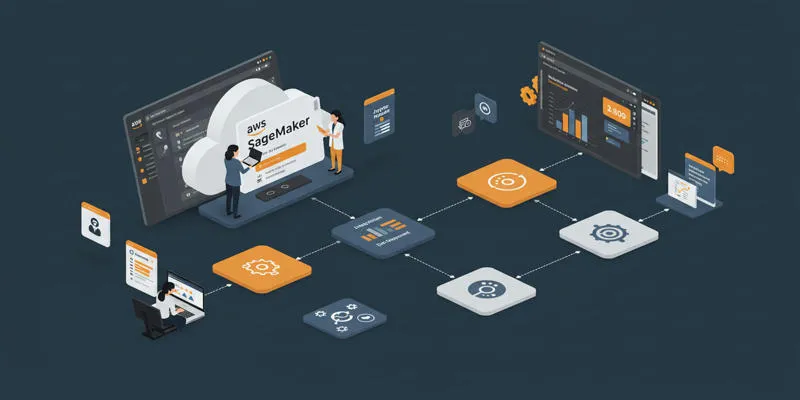The integration of cloud computing into healthcare has unlocked revolutionary advancements in patient care and medical research. When industry giants like AWS and Philips team up, the impact on healthcare becomes even more profound. Their partnership is focused on leveraging cloud technology to enhance data management, enable real-time insights, and improve the accessibility of medical services.
This collaboration combines Philips’s expertise in healthcare solutions with AWS’s robust cloud infrastructure, aiming to reshape how patients and healthcare providers interact with data. This results in a more cost- effective, patient-centric, and efficient healthcare delivery system. But what motivates these two companies to form such a historic partnership? Here’s a look at how this partnership is shaping the future.
The Foundation of the AWS & Philips Partnership
The core of this partnership stems from a shared vision: using cloud innovation to create smarter healthcare. AWS is a leader in advanced cloud delivery, offering unmatched scalability, security, and data analytics capacity. Meanwhile, Philips brings decades of experience in healthcare equipment and platform development for medical technology applications worldwide. Together, they aim to solve complex healthcare problems, especially issues related to fragmented data systems, delayed diagnostics, and low patient engagement.
Through this partnership, AWS provides cloud infrastructure tools that help Philips store and process vast volumes of healthcare data securely. Philips’s cloud-native solutions, such as its HealthSuite platform, utilize these tools to make real-time patient data available to healthcare providers, enabling quicker clinical decisions, better coordination among medical teams, and a more personalized approach to treatment plans.
They also focus on leveraging advances in artificial intelligence (AI) and machine learning (ML) in healthcare. AWS’s AI and ML services empower Philips to develop intelligent applications that can detect anomalies in medical imaging, predict disease progression, and automate routine tasks. Together, they are planting the seeds for a future where healthcare systems are more autonomous and efficient, with reduced human error.
How Cloud Partnerships are Shaping Modern Healthcare?
The collaboration between AWS and Philips exemplifies how cloud partnerships are redefining the healthcare landscape. Cloud technology enables healthcare providers to move beyond traditional limitations, allowing them to focus on innovation and patient-centered care. As more tech and healthcare companies collaborate, we can expect rapid advancements in digital health solutions.

Cloud partnerships offer limitless possibilities, from wearable health trackers that provide continuous monitoring to AI-powered diagnostic tools that help doctors identify conditions earlier. The AWS & Philips partnership serves as a model for future collaborations, highlighting the importance of combining technological expertise with healthcare knowledge. This trend is expected to accelerate the shift towards a more data-driven and personalized approach in medicine, ultimately benefiting both providers and patients.
Benefits of Cloud Healthcare Solutions
The AWS & Philips partnership brings numerous benefits across the healthcare ecosystem. One of the most significant advantages is enhanced data interoperability. In many healthcare systems, patient data is scattered across various platforms and formats, making it challenging for providers to access a complete medical history. By centralizing data on a secure cloud platform, Philips ensures that healthcare professionals can view and share information seamlessly, leading to improved continuity of care.
Another crucial benefit is scalability. Traditional healthcare IT infrastructure often struggles to keep up with growing data demands. With AWS’s scalable cloud services, healthcare providers can expand their digital capabilities without worrying about capacity limitations or hardware costs. This flexibility allows hospitals and clinics to adopt new digital tools and services quickly, ensuring they stay at the forefront of medical innovation.
Patient engagement is another area where this partnership shows promise. With cloud-enabled platforms, patients can access their health records, schedule appointments, and even participate in telehealth sessions—all from the convenience of their devices. Philips’s patient-centric solutions, combined with AWS’s cloud power, aim to enhance the overall healthcare experience, making it more interactive and transparent for patients.
The partnership also drives advancements in medical research. By utilizing AWS’s high-performance computing services, researchers can process large datasets faster, accelerating the discovery of new treatments and therapies. Philips’s data-driven approach, supported by AWS’s computational power, helps researchers analyze clinical data in real time, facilitating breakthroughs in precision medicine and personalized treatments.
The Future of Healthcare with AWS & Philips
The AWS & Philips partnership marks a pivotal shift toward a smarter and more interconnected healthcare landscape. By integrating advanced cloud technology and healthcare expertise, they aim to introduce cutting-edge innovations, particularly in predictive analytics. Machine learning models can analyze large datasets to forecast potential health risks, enabling early interventions that lower costs and improve patient outcomes. This proactive approach enhances care quality while reducing the burden on healthcare providers.

Another transformative impact lies in expanding healthcare access to underserved regions. Through telemedicine, remote monitoring, and mobile health solutions powered by AWS’s global cloud infrastructure, Philips can bridge the gap for communities with limited medical facilities. This ensures broader access to quality care, regardless of location.
Security and regulatory compliance are key pillars of this partnership. AWS’s robust encryption and Philips’s adherence to standards like HIPAA and GDPR safeguard sensitive patient information, fostering trust in cloud healthcare solutions.
Looking ahead, the collaboration may extend to home care and wearable devices, enabling continuous health monitoring and timely medical interventions. Such advancements promise a future of personalized, efficient, and accessible healthcare for all.
Conclusion
The AWS & Philips partnership signifies a groundbreaking shift in healthcare, harnessing cloud technology to improve data management, enhance patient engagement, and accelerate medical research. By leveraging AWS’s scalable infrastructure and Philips’s healthcare expertise, they are addressing long- standing challenges and paving the way for smarter, more connected healthcare systems. From real-time insights to AI-driven innovations, this collaboration offers immense potential for better patient outcomes and more efficient care delivery. As the partnership evolves, it will likely expand into areas like wearable health tech and remote care, ultimately shaping a future where healthcare is more accessible, personalized, and proactive.
 zfn9
zfn9
















